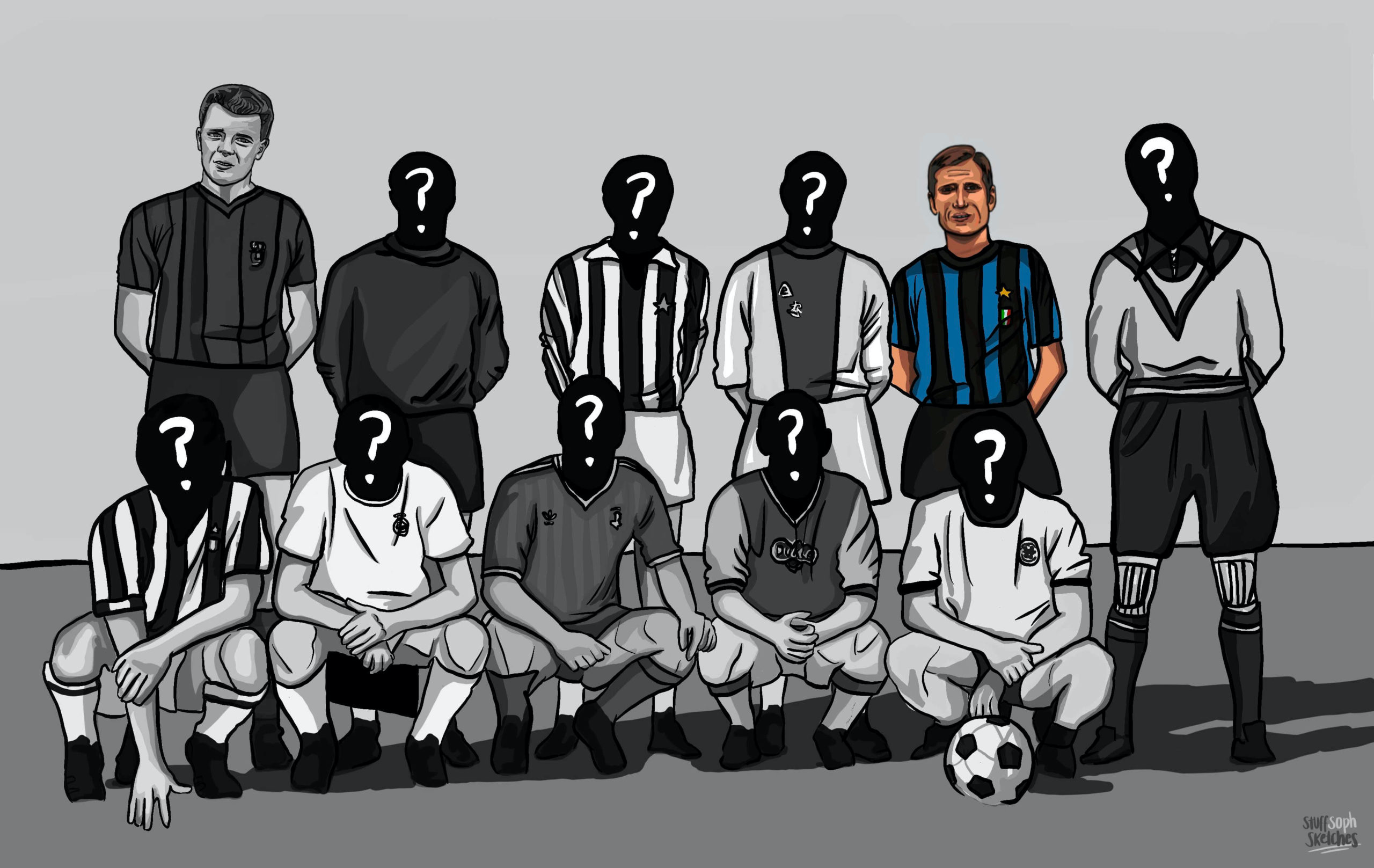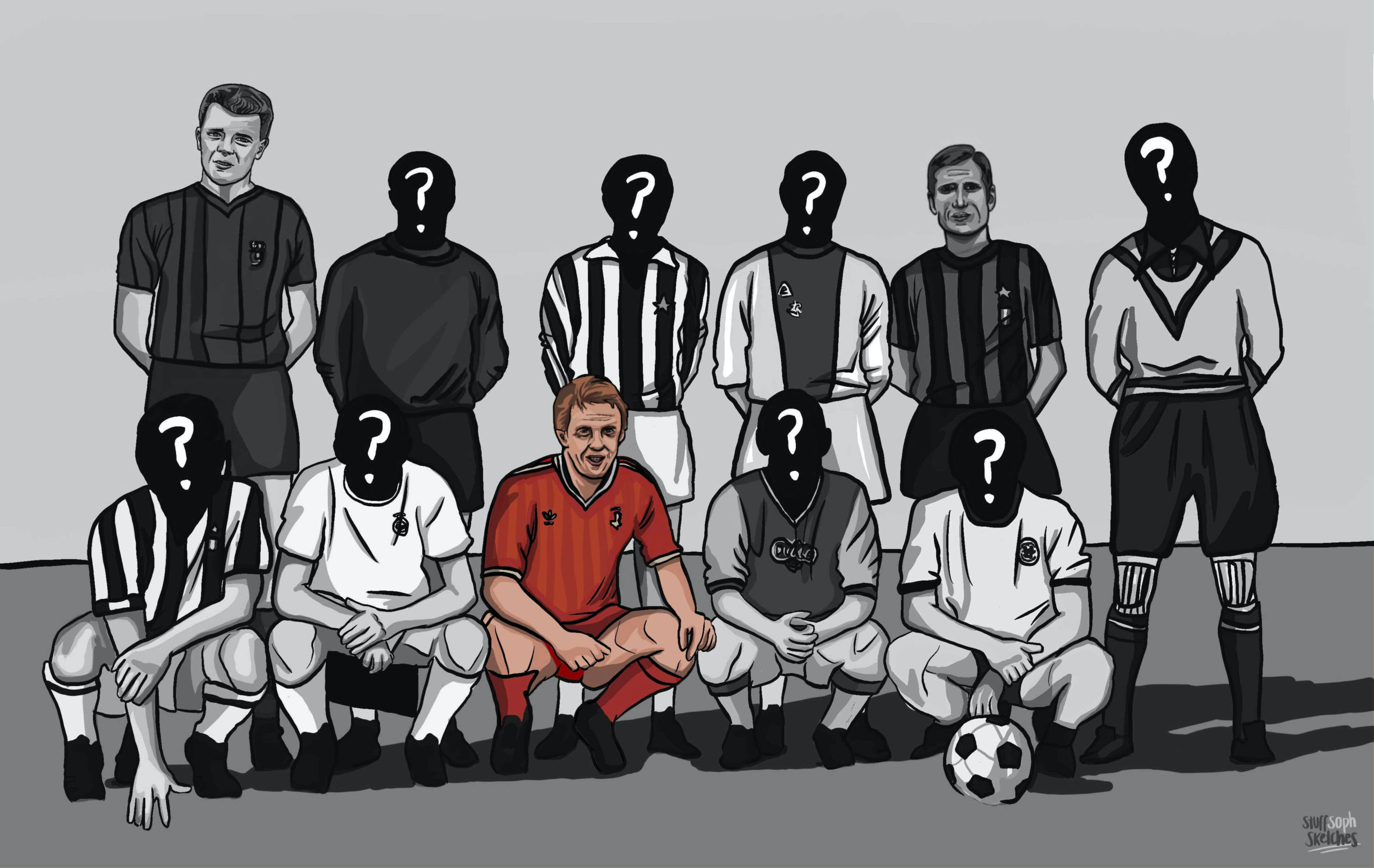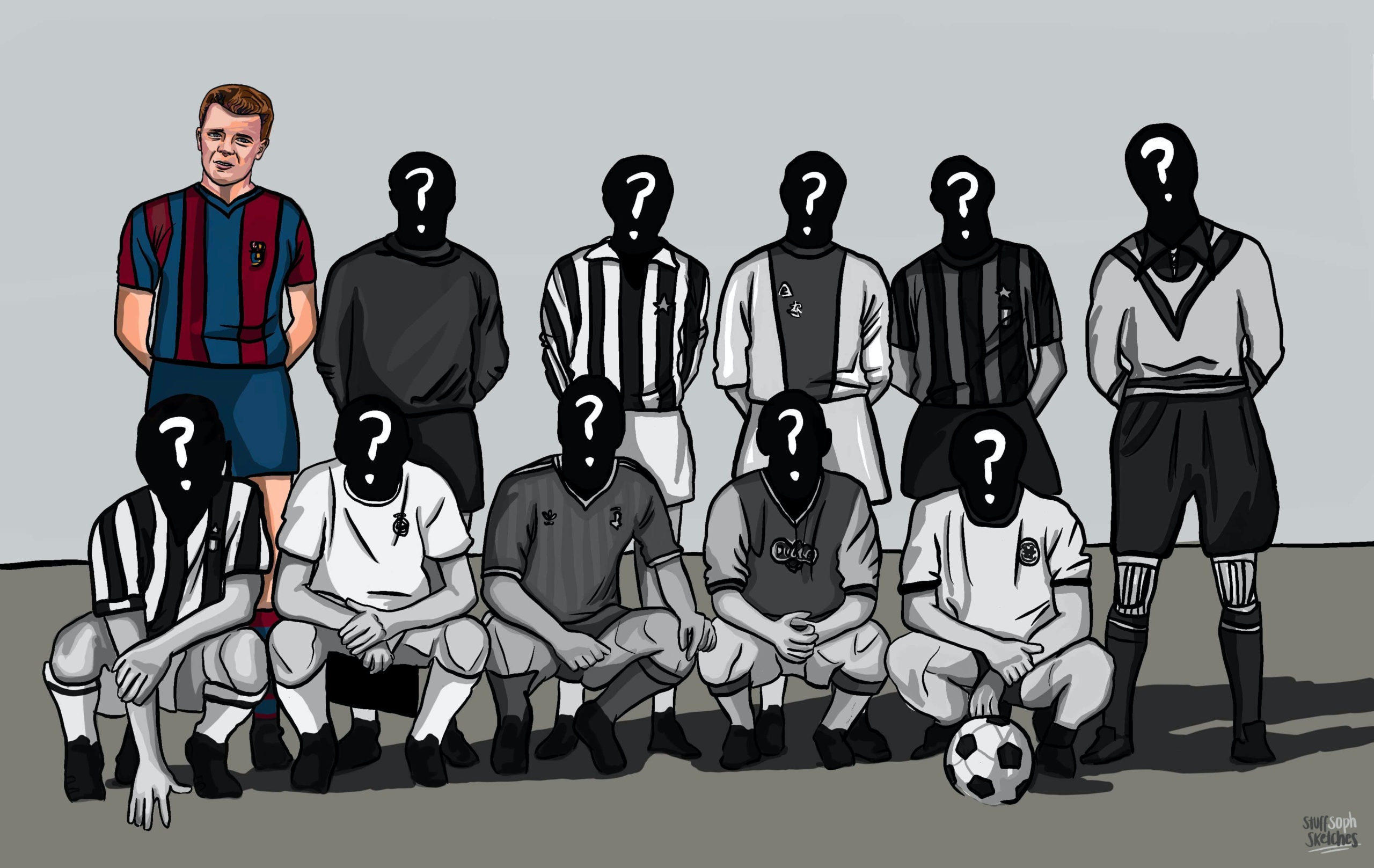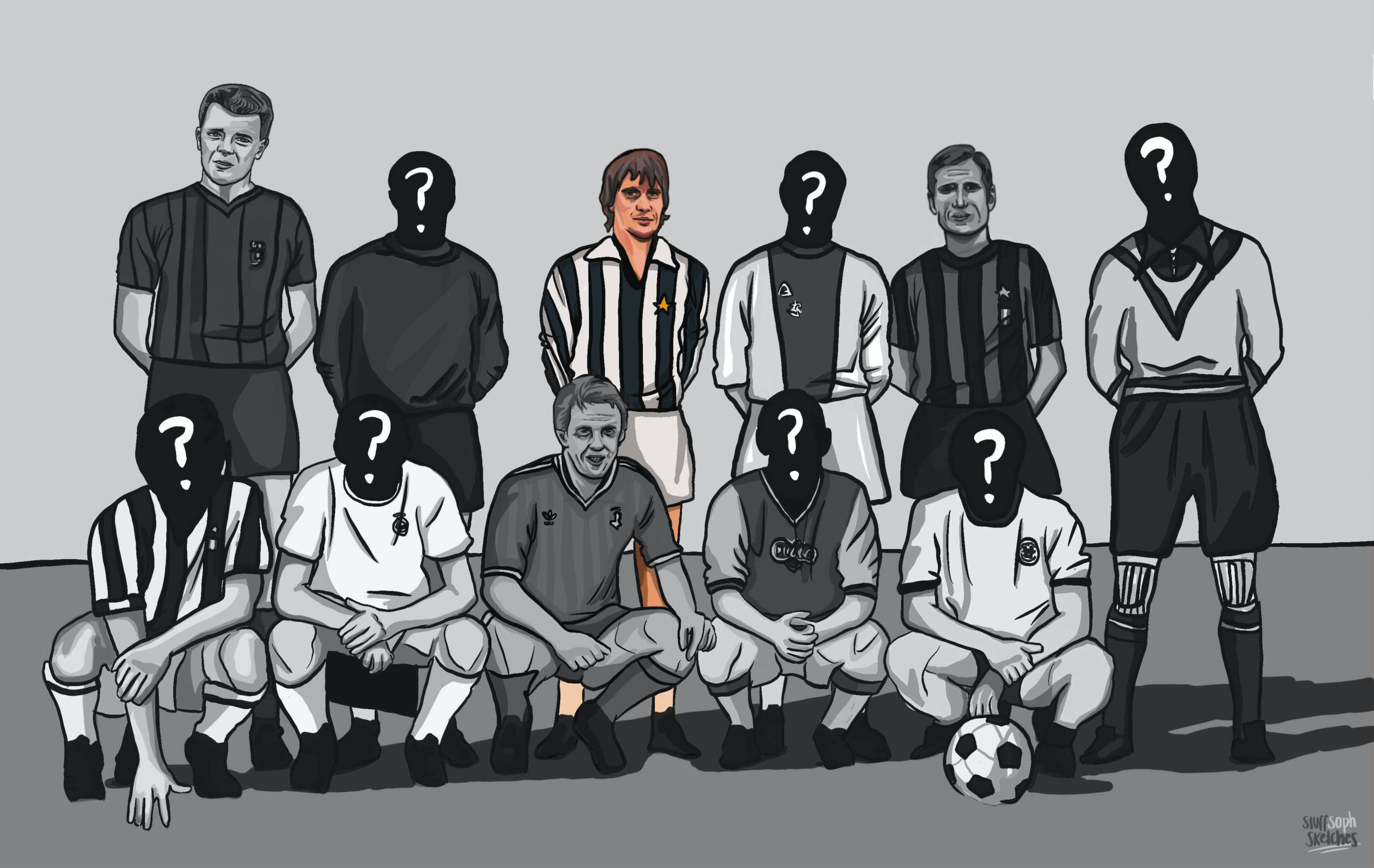It says everything about Giacinto Facchetti that, in an Inter Milan team remembered for its defensive qualities, he is remembered as the man who independently revolutionised the role of fullback. No longer an exclusively defensive player, the fullback was now expected to contribute in the attacking third. Between 1960 and 1978, Facchetti represented Internazionale with grace, loyalty and honour – even as he oscillated between left-back and sweeping positions. He was renowned for playing the game in the right spirit. Well, almost always (he was only sent off once in his career, for sarcastically applauding a referee). Facchetti’s longevity in the game was, in part, down to his tireless work-rate and selflessness. He was a member of the Grande Inter that won two European Cups, two Intercontinental Cups and three Serie A titles. Facchetti even survived the culling of the Italian national team after the debacle against North Korea in 1966. Not bad for a right-footed centre forward from Treviglio…
Born in Lombardy in July 1942, Facchetti was a model student at school with aspirations of becoming a doctor. Yet, this didn’t stop him from seeing if he could enjoy a career as a professional footballer first. Inter’s future giant began his footballing career as centre forward for his local team CS Trevigliese. Facchetti quickly developed as a player seeing that he applied the same conscientious attitude he demonstrated in his studies to his football. Noted for enjoying shooting from all distances, especially with his right foot, it was not before long that Facchetti was scouted by Helenio Herrera and signed for Internazionale in 1960.
If a defender can’t defend then he is simply a winger out of position.
One of young Facchetti’s first appearances for I Nerazzurri unfortunately came in a crushing 9-1 defeat to Juventus in 1961. However, Herrera had intentionally selected an inexperienced team as part of a protest aimed at the league. In his second season with Internazionale, Facchetti established himself as a regular in the starting eleven as Inter finished the season runners up to their cross-city rivals, AC Milan. By this time, despite being predominantly right-footed, Facchetti had been transformed into an athletic left-back with the freedom to attack whenever the opportunity arose. For Herrera, Facchetti was key to Inter’s catenaccio style. While the other defenders were given man-marking responsibilities, Facchetti was partially released from his defensive duties in order to get forward. In doing so, Facchetti became one of the first embodiments of Total Football. Today, we would refer to him as an overlapping fullback, or wing-back, some thirty years before the position existed. Nevertheless, Facchetti never doubted what the role of a fullback truly entailed. In 1999, he told La Gazzetta dello Sport that ‘if a defender can’t defend then he is simply a winger out of position’.
Inter won the Scudetto the following season (1962-63). With Facchetti a main stay in the defence, they lost only four league games in a thirty-four-game season, conceding just twenty goals and keeping eighteen clean-sheets. In doing so, Inter qualified for the European Cup the following season. After defeating Everton 1-0 in a preliminary round, Inter went on to knock out Monaco, Partizan Belgrade, and Borussia Dortmund before facing the mighty (but aging) Real Madrid in the final. Alfredo Di Stéfano recalled that Miguel Muñoz, the Madrid coach, was obsessed with stopping Facchetti bombing down the left wing from the fullback position. Deciding that he was the one man to stop, other Inter players were left free. While Facchetti did make the pass from which Sandro Mazzola opened the scoring for Inter, Herrera decided that he would use Facchetti as a man marker in the final to nullify Amancio Amaro. Inter won 3-1 in the final before going on to win the Intercontinental title later that year.
In 1964-65, Inter retained the European Cup, defeating Benfica 1-0 in the final. Facchetti’s superb winning goal, out of nowhere, helped defeat Liverpool 4-3 on aggregate in the semi-final. They won Serie A again for the ninth time in their history and even defended their Intercontinental trophy. On a personal level, Facchetti’s performances led to him being named runner up to Eusébio for the European Player of the Year award. Attacking from fullback and with an ability to cut inside, shoot, or create opportunities, Facchetti was proving almost impossible to defend against. Opposition teams were forced to distort their shape in an attempt to deal with him, but this was to little avail as Facchetti still managed to score twelve goals in thirty-eight appearances in the 1965-66 season. In the same season, Inter retained the league – winning their tenth Scudetto (earning them a star above their badge) – and were narrowly defeated by Real Madrid in the semi-final of the European Cup.
Having enjoyed great domestic success and being reported as one of the best defenders in the world, Facchetti made his way to England to compete in the World Cup of 1966. Despite boasting a strong squad, Italy lost 1-0 to both the Soviet Union and North Korea, thus eliminating them from the competition embarrassingly early. Upon their return, the Italians were greeted by a bombardment of rotten fruit. It was typical of the man, that after his team’s poor performances, Facchetti wrote to the journalist who had previously praised him and sincerely apologised for his efforts.
Facchetti survived the Italian purge that followed the humiliating defeat to North Korea and was later named captain in November 1966, remaining so until his retirement in 1978. With fullback Facchetti at the helm, Italy won the European Championships in 1968, defeating Yugoslavia in a replay after the first final ended in a draw. Remarkably, Italy had reached this final due to Facchetti’s call of a coin toss to settle a goalless semi-final with the Soviet Union. Two years later, Facchetti once again captained Italy in a World Cup final, only this time losing 4-1 to Brazil.
In 1967, Facchetti scored in both legs of the European Cup semi-final against CSKA Moscow. Inter would go on to lose the final 2-1 to Celtic. Inter would not appear in another European Cup final until 1972, where they would lose again – only this time to Johann Cruyff’s Ajax. Inter had qualified for this European Cup after they had won what would be Facchetti’s fourth and final league title.
As Facchetti grew older and lost his pace, he switched to playing sweeper where his positioning and ability to read the game enabled him to maintain his reputation as one of the world’s best “all-round” defenders.
Eventually, Facchetti retired in 1978. Throughout his professional club career, spanning 629 appearances, Facchetti scored seventy-five goals for Inter Milan. He represented Italy ninety-four times, seventy as captain, scoring three times. He won Serie A four times, the European Cup twice, the Intercontinental trophy twice and the Coppa Italia once.
Paolo Maldini spoke at length of the defender’s lasting influence on his own career whilst Franz Beckenbauer admitted that he modelled his own game on Facchetti’s (instead applying his overlapping technique to the middle of the field). Pelé selected him as one of the Greatest 100 Players of All Time. Facchetti was similarly nominated for the European Championship Team of the Tournament in 1968, and likewise for the World Cup in 1970. If this was not enough, Facchetti has been more recently engraved into the Italian Hall of Fame as of 2015 and the Inter Hall of Fame in 2019. Inter even retired his iconic Number 3 shirt after his death in 2006.
Not only was Facchetti a superb player, but he was also a competent ambassador for the sport and reportedly a good man. Dino Zoff, former Italian goalkeeper, stated that ‘you couldn’t fail to like him; he was an extraordinary lad’. During the 1960’s, it is fair to say that Facchetti certainly rejuvenated, if not totally reinvented, “the fullback” in world football.



